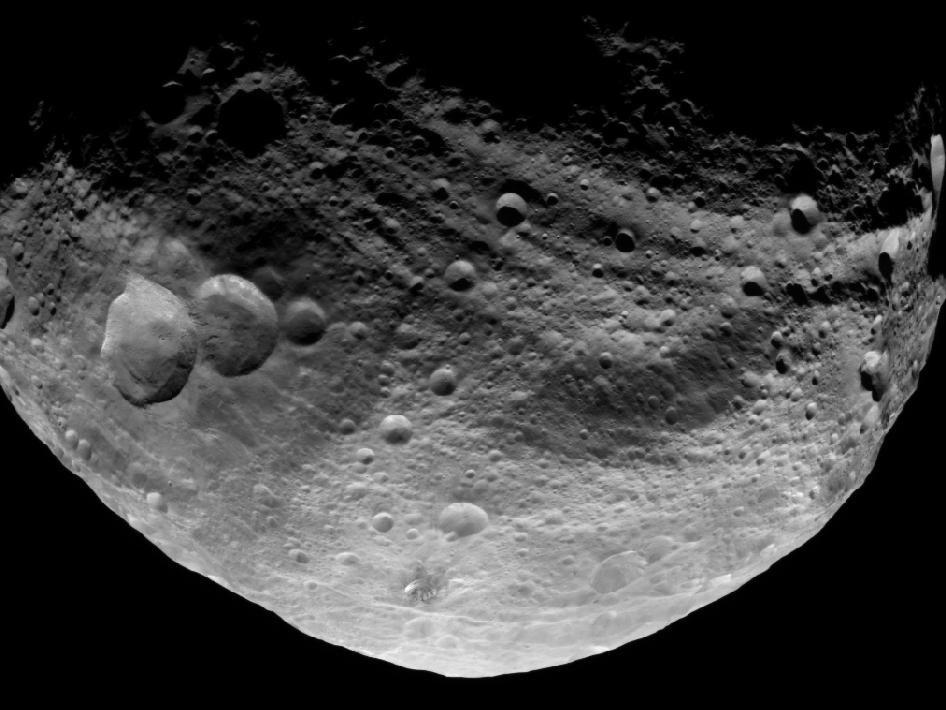Dawn took this image over Vesta's northern hemisphere after the spacecraft completed its first passage over the dark side of the giant asteroid. It is northern hemisphere winter on Vesta now, so its north pole is in deep shadow.
 The Dawn science team is working to determine the significance of the distinct features in this image, which include large grooves or ridges extending for great distances around Vesta.
The Dawn science team is working to determine the significance of the distinct features in this image, which include large grooves or ridges extending for great distances around Vesta.
The Astronomical Research Center (A.R.C) mentioned that this image was taken by Dawn's framing camera on July 23, from a distance of 3,200 miles (5,200 kilometers).
The Dawn mission to Vesta and Ceres is managed by NASA's Jet Propulsion Laboratory, a division of the California Institute of Technology in Pasadena, for NASA. The University of California, Los Angeles, is responsible for overall Dawn mission science. The Dawn framing cameras have been developed and built under the leadership of the Max Planck Institute for Solar System Research, Katlenburg-Lindau, Germany, with significant contributions by DLR German Aerospace Center, Institute of Planetary Research, Berlin, and in coordination with the Institute of Computer and Communication Network Engineering, Braunschweig. The Framing Camera project is funded by the Max Planck Society, DLR, and NASA/JPL.